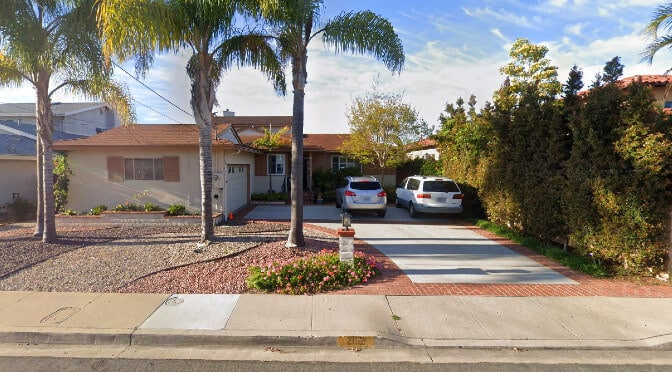
11 Ways To Tell a Loan Offer is a SCAM
Any real estate investor who has spent any time in real estate investor forums, Facebook Groups or other online networks for real estate investors has likely come across loan offers that are complete scams designed to separate you from your money.
Getting involved with a loan scammer will result in wasting time, losing money or having your identify stolen.
Online loan scams generally all work the same way. The scammer offering the (too good to be true) loan terms agrees to move forward and fund the loan request as soon as they receive some type of upfront payment from the borrower. Once the borrower makes the mistake of providing an upfront payment the scammer says they didn’t received the payment, there was some problem with the loan or application, or they simply disappear with the borrower’s money.
The Loan Scam Red Flags
Below are some red flags which should alert you that the loan offer may be a scam. None of these issues by themselves necessarily mean the offer is a scam but if you come across a few of these different red flags proceed with extreme caution.
1. The lender asks for money upfront
This is the most glaring red flag. The scammer may maintain that this is standard procedure and call it an insurance fee, processing fee, application fee, appraisal fee, advanced payment, taxes or a deposit.
The scammer will require an upfront payment is wired (usually through Western Union or similar service) or request the payment in the form of a prepaid debit card. The scammers only accept the upfront payment in a way that is difficult to trace, leaving the borrower unable to ever retrieve their payment.
In the majority of loan transactions, fees are rolled into the loan amount, which requires no money out of pocket.
There are some situations that legitimately require providing the lender with upfront money such as for an appraisal or a credit report fee but these are relatively small amounts of money. The key is to know exactly who you are dealing with prior to moving forward.
2. Misspellings, poor grammar and does not seem like a native English speaker
If the posts/emails contain many misspellings, grammar issues and questionable word choices it may be an overseas scammer. Many of these scams originate from places like Africa or Eastern Europe where English is not their first language.
3. The loan is offered as unsecured debt
Unsecured debt always comes with a very high risk for a lender. If a borrower defaults on an unsecured loan the lender will have a very difficult time recovering any portion of the loan amount, hence the high risk. Most loans require some type of collateral such as real estate, business assets or even a car title.
4. Every type of loan is available
Most lenders specialize in a specific type of loan and are experts in this type of funding. Scammers on the other hand will offer every type of loan possible including home loans, personal loans, investment loans, business loans, student loans, car loans and any other type of loan they can think of. The scammer is just casting a wide net in order to catch as many suckers as possible.
5. Very low interest rates
Scammers often promote extremely low rates, generally in the range of 2-4%. Anyone with real estate experience knows that these types of rates are not available unless dealing with a bank or credit union. The scammer may also offer a 1-2 year initial period of no payments required or 0% APR.
6. Guaranteed approval regardless of credit history and no need for credit checks
Credible lenders need to know that the borrower is going to be able to pay back the loan. Looking at the borrower’s credit history is often the best indicator of the borrower’s ability to repay the debt.
Lenders who are not as concerned with credit will require that the borrower has a sufficient amount of equity in an asset used as collateral for the loan.
7. The borrower is forced to make a quick decision to obtain the loan
Scammers will often claim their loan offer must be accepted immediately by the borrower or it will no longer be available. This is a ploy to ensure that the borrower doesn’t have the needed time to research the “lender” and forces the borrower into making a poor decision. If pressure is put on the borrower to move forward with a loan it’s a sign to steer clear.
8. No website
Legitimate lenders have websites. They post information about their lending programs, give a background about the company, display information about recent loans they have closed and blog about issues in their industry. A successful lender would have the funds to pay for a company to design and build a website.
The website should also provide the physical location where the company is based.
Even the most technology-challenged person can create a website these days, especially with all of the great free tools available. A basic website can easily be created and posted within a day.
9. Gmail, Yahoo or other generic email account
Nothing against Gmail, but loan scammers are known for choosing this email service (as well as Yahoo) as their email service provider of choice. If they were truly a legitimate lender they would most likely have an email hosted with the domain name of the company website in their email address.
10. 100% financing is offered
Many aspiring real estate investors who don’t have capital to invest often want to borrow all of the purchase price with 100% financing. Legitimate lenders rarely will agree to do 100% financing loans for various reasons. Loan scammers often offer 100% financing because they know novice investors who have been turned down everywhere else will be receptive to this type of loan proposal.
11. No licensing information is provided
Legitimate lenders will have some sort of licensing, registration and affiliations with professional organizations. Many lenders are required to display their real estate licensing information and business address on marketing and promotional information. Many legitimate lenders are also members of their local Better Business Bureau but this is not requirement.
Conclusion
This article listed some of the common issues that may indicate the person on the other side of the computer is a loan scammer. Any other actions that seem unprofessional or out of place should be a cause for concern as well. The most important things to protect is this situation is your money and personal information.
Remember to never submit sensitive information such as Social Security numbers, date of birth, address, bank account information or any personal information until you are confident you are dealing with a reputable lender.
Recent Hard Money Loans Funded by North Coast Financial
CA Hard Money Loan Request
We will contact you to review the loan scenario and provide a quote.




